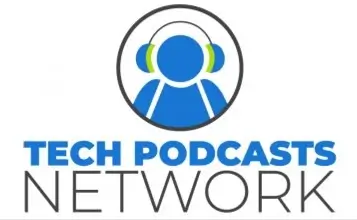In an age where technology increasingly permeates our daily lives, the quest for accessibility has become paramount, particularly for individuals with physical disabilities. The recent introduction of the Lotus Ring, showcased at CES, epitomizes this movement by offering a revolutionary solution for controlling smart home devices without the need for internet connectivity. This innovation not only enhances the quality of life for users but also challenges the conventional paradigms of smart home technology.
Accessible Smart Home Control: A New Era of Independence Without Internet
The Lotus Ring is designed specifically for individuals with physical disabilities, allowing them to control various objects in their homes simply by pointing. Unlike traditional smart home systems that often rely on voice commands via devices like Alexa or Google Home, the Lotus Ring operates entirely offline. This distinctive feature eliminates the need for apps, rewiring, or a constant internet connection, making it an accessible option for a wider audience.
The operational simplicity of the Lotus Ring is one of its most compelling aspects. Users wear the ring on their pointer finger, which is equipped with a small button that activates a mechanism to control devices. To demonstrate its functionality, the presenter in the podcast explains a straightforward three-step process: first, the user dons the ring; second, they attach a small device magnetically to an existing wall switch; and third, they can point and click to operate the switch. This process transforms any standard wall switch into a smart control point, enabling users to manage their home environment effortlessly.
Designed for Simplicity and Mobility
The design of the Lotus Ring addresses a significant barrier faced by many smart home technologies: the need for extensive setup and compatibility checks. Traditional systems often require users to navigate complex pairing processes, which can be daunting for those with limited mobility or technical expertise. In contrast, the Lotus Ring requires no such pairing. This means that an apartment building with multiple residents can utilize the same technology without interference or the need for individual configurations, fostering an inclusive environment.
Moreover, the portability of the Lotus Ring adds another layer of convenience. Users can easily transport the device from one location to another, such as from their home to a hotel or Airbnb, without losing access to their smart home capabilities. This flexibility is particularly beneficial for individuals who travel frequently or live in rental properties where permanent modifications to the home environment are not feasible.
The Lotus Ring’s approach to smart home control exemplifies a shift towards more inclusive technology. By prioritizing accessibility and ease of use, it empowers individuals with disabilities to take control of their living spaces without relying on complex systems that can often be exclusionary. This innovation not only enhances independence but also promotes a sense of agency, allowing users to engage with their environment on their own terms.
Conclusion
In conclusion, the Lotus Ring represents a significant advancement in the realm of accessible smart home technology. By eliminating the need for internet connectivity and complex setups, it opens the door for individuals with physical disabilities to enjoy the benefits of a smart home. As technology continues to evolve, it is crucial that we prioritize inclusivity and accessibility, ensuring that everyone can participate in and benefit from the conveniences of modern living. The Lotus Ring is a testament to this vision, providing a glimpse into a future where smart home control is truly within everyone’s reach.
Interview by Marlo Anderson of The Tech Ranch.
Get $5 to protect your credit card information online with Privacy.
Amazon Prime gives you more than just free shipping. Get free music, TV shows, movies, videogames and more.
The most flexible tools for podcasting. Get a 30 day free trial of storage and statistics.
Podcast: Play in new window | Download
Subscribe: Apple Podcasts | RSS | More

 The
The